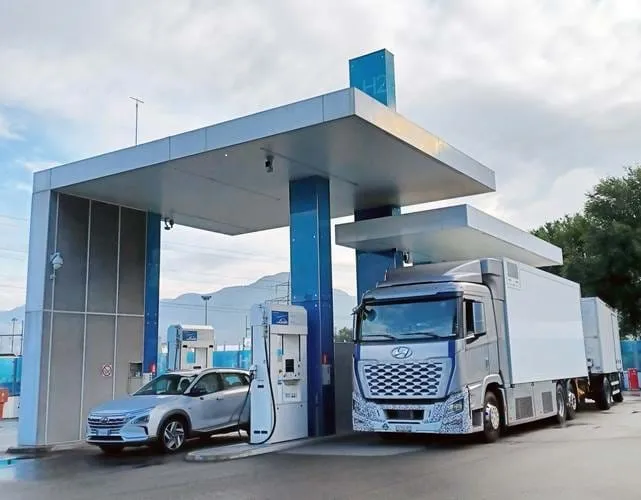
An upgrade to northern Italy’s most important autostrada includes more EV charging stations as well more hydrogen filling stations, according to concessionaire Autostrada del Brennero.
The €7.2 billion investment will transform the A22 motorway between Modena and Bolzano into one of Italy’s greenest intermodal corridors, according to Diego Cattoni, chief executive of Autostrada del Brennero, as reported in Italy’s Sole 24 Ore newspaper. A major rail line runs along the same corridor, north from Modena, past Bolzano and to the border with Austria.
The 314km A22 connects Pianura padana, the city of Modena and the A1 motorway to Austria through the Brenner Pass, located in the municipality of Brenner.
According to the concessionaire, there are already 57 electric vehicle charging stations and 22 service areas – along with 24 toll booths. The upgrade will push the number of EV charging points to more than 100. It will also add four hydrogen filling stations to the one existing station that was opened in 2014 in Bolzano Sud. It was the first plant in Italy for the production, storage and distribution of green hydrogen and remains the only such centre in the country.
The system was created by Autostrada del Brennero and managed by the Institute for Technological Innovation a foundation established jointly by the Italian Ministry of Education, Universities and Research and the Ministry of Economy and Finance to promote basic and applied research.
Autostrada del Brennero says that the hydrogen plant can produce 180m² of hydrogen per hour for a total per year of over 1.5 million cubic meters. The hydrogen distributor has the capacity to fuel around 15 coaches with hydrogen per day, with an autonomy of 200-250km or up to 700 cars.
The consequent annual saving for the environment is around 525,000 litres of petrol or 440,000 litres of diesel, which correspond to over 1,200,000kg of CO2 not emitted into the atmosphere. The long-term objective of Autostrada del Brennero is to create a distribution network with fuelling stations at intervals of no more than 100km.
"We are convinced that it will be innovation and technology that will help us win the challenge of sustainability," noted Cattoni. “We must immediately offer a plurality of alternatives to traditional fuels."
He says that that “capillary fuel distribution infrastructure” is essential. “Our business plan provides for the development of another five new plants.”
The new “capillary” plants – hydrogen refueling statioins - will be in Brenner, Trento, Rovereto, Verona and Campogalliano.
Initially, these will be refueling points, but the business plan already plans to transform them into as many production centres, which will exploit the most suitable renewable energy for each area crossed by the A22. The concessionaire is also looking at EV stations powered by biomass and wind turbines.







